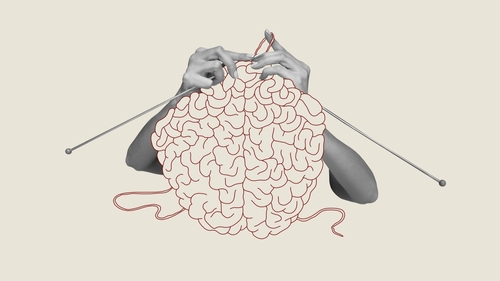Risks of Benzodiazepine Use: What to Know
This entry was posted in Addiction News, Addiction Recovery, Drug Abuse, Mental Health and tagged on February 05, 2024 by Justin Baksh, MS, LMHC, MCAP, Chief Clinical Officer.

Benzodiazepines, sometimes called “benzos,” are prescription medications that depress the central nervous system. They work by enhancing the effects of a brain chemical called GABA, which naturally calms down the brain and nervous system. This calming effect leads to a range of therapeutic benefits, making them effective in treating:
1. Anxiety disorders: Including generalized anxiety disorder, panic disorder, phobias, and social anxiety disorder. Benzos help dampen the overactive brain, reducing anxious thoughts and feelings.
2. Insomnia: When difficulty falling or staying asleep becomes severe, benzos can induce relaxation and promote sleep. However, they’re not recommended for long-term sleep management due to potential dependence and tolerance.
3. Seizures: Certain types of epilepsy and seizure disorders can be controlled with benzos, due to their ability to suppress abnormal electrical activity in the brain.
4. Muscle spasms: These can be associated with various conditions, and benzos can help relax muscle tension and reduce associated pain.
5. Pre-operative sedation: Before surgery, benzos can calm nerves and anxiety, and even induce some amnesia to ease the memory of the procedure.
Are Benzodiazepines Addictive?
Benzodiazepines can be highly addictive, primarily because of the way they work.
They enhance the effects of GABA, a brain chemical that induces a calm and relaxed state. This leads to a feeling of euphoria and relief, which can be very intense, especially for people experiencing anxiety, insomnia, or other distressing symptoms.
Over time, the brain adjusts itself to the supply of benzos, requiring higher doses to achieve the same desired effects. This is called tolerance. Additionally, the brain becomes dependent on benzos for normal functioning, leading to withdrawal symptoms like anxiety, insomnia, and even seizures if the medication is stopped abruptly.
Benzos activate the brain’s pleasure and motivation centers. This can lead to cravings for the drug and compulsive drug-seeking behavior, hallmarks of addiction.
There are also individual factors at play. Genetic predispositions, mental health conditions, or personal experiences can cause some people to become addicted more easily than others.
Misusing the drugs can also lead to addictions. Taking them in higher doses than prescribed, for longer than recommended, or for purposes other than intended (e.g., recreationally) significantly increases the risk of addiction. Combining benzos with alcohol or opioids, or other substances, also heavily increases the risk of addiction and overdose.
The risk of addiction is higher with certain types of benzos, particularly those with shorter half-lives, like Xanax, as they require more frequent dosing and can lead to quicker dependence.
Abruptly stopping benzos can be dangerous. Gradually tapering down the dosage under medical supervision is essential to minimize withdrawal symptoms. Not everyone who takes benzos becomes addicted. However, the potential for addiction is significant, and it’s crucial to be aware of the risks before starting or continuing treatment with these medications.
How long does it take for the body to become physically dependent on benzodiazepines?
Unfortunately, there’s no one size fits all answer to how long it takes for the body to become physically dependent on benzodiazepines.
General Estimates
Research suggests that physical dependence can develop as early as a few days of regular use in some individuals. For others, it might take weeks or even months.
According to The Benzodiazepine Information Coalition, “Estimates show that between 20- 100% of prescribed long term (more than 2-4 weeks) benzodiazepine patients have difficulty stopping because of withdrawal symptoms. The presence of physical dependence does not indicate addiction.”
The timeframe can vary significantly depending on several factors
Individual Factors
Genetics: Some people are genetically predisposed to addiction, making them more susceptible to dependence on any substance, including benzos.
Age: Older adults and individuals with compromised health are generally more susceptible to rapid dependence.
Mental health conditions: Existing anxiety, depression, or trauma can predispose a person to physical dependence.
Past substance use: People who have been addicted to substances in the past are more likely to develop dependence on benzos.
Medication Factors
Type of benzodiazepine: Shorter-acting benzos like Xanax or Ativan have a higher risk of dependence due to the need for frequent dosing and quicker dependence build-up.
Dosage: Higher doses naturally carry a higher risk of dependence compared to lower dosages.
Duration of use: The risk of dependence increases the longer you take the medications.
What are the risks of long-term benzodiazepine use?
Long-term benzodiazepine use carries several potential risks, which can impact various aspects of your physical and mental health. In addition to the risk of dependence and addiction, those using benzos for a long period of time can also experience:
Cognitive impairment: Chronic benzo use can affect memory, attention, and decision-making abilities. This can interfere with general daily life, work and relationships.
Increased falls and fractures: Benzos can cause drowsiness, muscle weakness, and impaired coordination, raising the risk of falls, especially in older adults. This can lead to serious injuries like hip fractures.
Mental Health Concerns: While benzos are prescribed for anxiety and insomnia, long-term use can paradoxically worsen these symptoms or even trigger depression and other mental health issues.
Impaired respiratory function: Benzos can suppress the nervous system, potentially compromising breathing function. People with sleep apnea or respiratory conditions should discuss the benefits vs. the risks with their doctor.
Drug interactions: Benzos interact with other medications, including alcohol, opioids, and certain antidepressants, potentially leading to dangerous side effects or increased overdose risk.
Birth defects and pregnancy complications: Benzo use during pregnancy can harm the developing fetus, increasing the risk of birth defects and developmental problems.
Increased mortality risk: Studies suggest a link between long-term benzo use and an increased risk of death from all causes, including accidents, suicides, and medical complications.
These are potential risks, and not everyone who takes benzos will experience all of them. Be aware of the dangers and discuss them with your doctor before starting or continuing benzodiazepine therapy.
What should you do if you’ve become dependent or have been using benzodiazepines for a long time?
If you feel dependent on benzodiazepines or have been taking them for an extended period, it’s crucial to not attempt to stop abruptly. Doing so can trigger severe withdrawal symptoms and even pose health risks. Instead, take these steps to help yourself.
- Talk to your doctor: This is the most important step. Be honest about your concerns and willingness to safely taper off the medication. Your doctor can assess your situation, develop a personalized tapering plan, and provide necessary support throughout the process
- Don’t make sudden changes: Stopping benzos abruptly can have serious consequences, including seizures, anxiety attacks, and rebound insomnia. Your doctor will design a gradual tapering schedule that minimizes withdrawal symptoms and increases your chances of success.
- Seek support: Consider joining a support group or therapy program specifically for people tapering off benzodiazepines. Connecting with others who have been there can be a valuable source of advice and emotional support.
- Manage withdrawal symptoms: As you taper down, anticipate some withdrawal symptoms like anxiety, insomnia, and restlessness. Your doctor can prescribe medications or suggest complementary therapies to manage these symptoms and make the process more tolerable.
- Be patient: Tapering off benzos can take weeks or even months. Be patient with yourself and focus on progress, not perfection. Avoid setting unrealistic expectations and celebrate every milestone along the way.
- Practice self-care: Prioritize sleep, healthy eating, regular exercise, and stress-management techniques during this time. Taking care of yourself physically and mentally will boost your resilience and support the tapering process.
- Avoid triggers: Identify situations or substances that might trigger benzo cravings or anxiety. Develop coping mechanisms and avoidance strategies to minimize relapse risks.
- Don’t hesitate to seek help: If you experience severe withdrawal symptoms or feel overwhelmed, seek immediate medical attention. Your doctor can support and guide you throughout this journey.
With proper medical guidance, support, and self-care, you can safely taper off benzodiazepines and regain control of your well-being.









